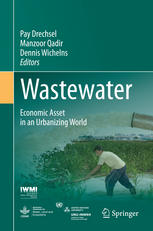

Most ebook files are in PDF format, so you can easily read them using various software such as Foxit Reader or directly on the Google Chrome browser.
Some ebook files are released by publishers in other formats such as .awz, .mobi, .epub, .fb2, etc. You may need to install specific software to read these formats on mobile/PC, such as Calibre.
Please read the tutorial at this link: https://ebookbell.com/faq
We offer FREE conversion to the popular formats you request; however, this may take some time. Therefore, right after payment, please email us, and we will try to provide the service as quickly as possible.
For some exceptional file formats or broken links (if any), please refrain from opening any disputes. Instead, email us first, and we will try to assist within a maximum of 6 hours.
EbookBell Team

4.3
48 reviewsThe books provides a timely analysis in support of a paradigm shift in the field of wastewater management, from ‘treatment for disposal’ to ‘treatment for reuse’ by offering a variety of value propositions for water, nutrient and energy recovery which can support cost savings, cost recovery, and profits, in a sector that traditionally relies on public funding. The book provides new insights into the economics of wastewater use, applicable to developed and developing countries striving to transform wastewater from an unpleasant liability to a valuable asset and recasting urbanization from a daunting challenge into a resource recovery opportunity.
“It requires business thinking to transform septage and sewage into valuable products. A must read for water scholars, policy makers, practitioners, and entrepreneurs".Guy Hutton, Senior Economist, Water and Sanitation Program, Water Global Practice, World Bank
“This book provides compelling evidence and real solutions for the new ‘resource from waste’ approach that is transforming sanitation, boosting livelihoods, and strengthening urban resilience”.Christopher Scott, Professor and Distinguished Scholar, University of Arizona
“This book shows how innovative business thinking and partnerships around resource recovery and reuse fit well within an inclusive green economy and climate change adaptation and mitigation strategies”.Akiça Bahri, Coordinator of the African Water Facility, Tunisia, and award-winning researcher